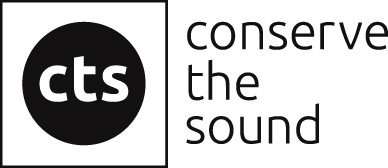Interview Nora Young
Nora Young is a Canadian journalist. In her radio show on Canada’s national public radio service she talks about changing technologies.
Could you please introduce yourself?
I’m Nora Young. I’m a Canadian journalist. My current project is as host and creator of Spark, on Canada’s national public radio service. It’s a radio show and podcast about technology and society. I’m interested in what changing technology shows us about who we are, and what’s gained and lost as we move from one technology to another.
Is there a sound dear to your heart? Could tell us about it?
My favourite sound is the sound of breeze through leafy trees, which of course is not related to everyday machines and appliances! For that, I would say I love the sound of the stovetop espresso maker as it bubbles, followed by the steam and frothing of the milk.
Is there a sound that brings back memories of your childhood?
For me, it’s the sound of analog media players of various kinds. We had a Super 8 camera in my family growing up, and I have many memories of “screenings” we would have in the living room when a reel of Super 8 film had been developed. My mother was an avid cassette tape user. She would record documentaries off the radio, for example, and we kids grew up kind of obsessed by the wonders of the cassette recorder. One time, we held the cassette player’s microphone up to the television when the movie Planet of the Apes was on, recording the entire audio of the film for later (frequent) playback.
Which certain disappearing sound should be preserved?
The personal sewing machine.
How important are sounds to you in your everyday life?
They’re very important to me in my work as a radio host and producer, and I’m always trying to find ways to make the stories we do more sonically rich. But outside of that, I find it’s the opposite, in a way: I’m always looking for quiet. I live and work downtown in a big city (Toronto) in which there’s always a lot of construction and other noise; it’s great when things are quiet enough that you can focus on a single small sound, but it doesn’t happen very often!
Have you sensed a transformation of sounds over time?
What I mostly notice is how much we need to engineer sounds into technologies that don’t inherently require them. For example, we create sounds for digital technologies like our phones, not because there are physical buttons that make sounds, but just to give us some feedback about how we are using the phone. I find the choices designers make in how to represent these kinds of sounds fascinating.
Should sound be preserved? Why?
Yes! Especially as a radio person, I feel that sound has tremendous power. We can create whole visual worlds for ourselves, based on a soundscape, for instance. Sound should be part of our history, as much as visuals, text, and physical objects.
Is there a sound you would not preserve? Why?
The dial-up modem. I think that sound has been burned into everyone’s brain by now!
Nora Young, Toronto, December 21st, 2018Find Nora online: cbc.ca/spark
Twitter/X: nora3000








